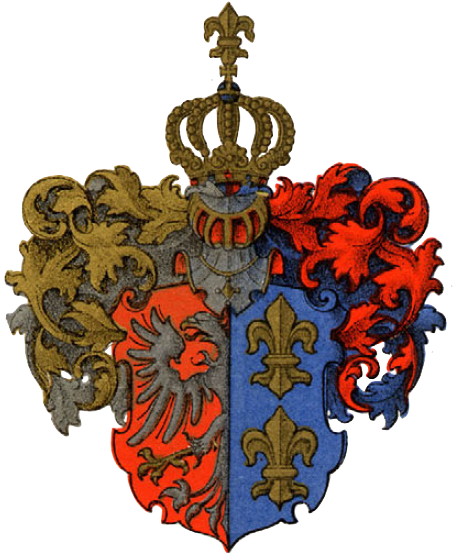09 novembEr 2024
Interview: Tchaikovsky and America admired each other
UN Radio Interviews Denis Von Meck after his presentation Tchaikovsky & America
translated by Irina Chepaykina
source https://news.un.org/ru/story/2024/11/1458181
translated by Irina Chepaykina
source https://news.un.org/ru/story/2024/11/1458181
“I would like with all the strength of my soul that my music spreads, that the number of people who love it, find comfort and support in it, will increase”, - admitted the great Russian composer Pyotr Ilyich Tchaikovsky in a letter to his beloved friend Nadezhda von Meck. The dream of the symbol of Russian classical music comes true every day on all continents.
Denis von Meck, a descendant of the great composer, who gave a lecture at the UN headquarters about Tchaikovsky';s trip to the United States, told the UN News in his interview that when Pyotr Ilyich Tchaikovsky came to New York in 1891, he was surprised by his popularity with the American public. The lecture was organized by the Permanent Mission of the Russian Federation to the United Nations. Lyudmila Blagonravova (LB) asked Denis von Meck (DvM) in more detail about his relationship with Tchaikovsky and the composer’s trip to the United States.
Denis von Meck, a descendant of the great composer, who gave a lecture at the UN headquarters about Tchaikovsky';s trip to the United States, told the UN News in his interview that when Pyotr Ilyich Tchaikovsky came to New York in 1891, he was surprised by his popularity with the American public. The lecture was organized by the Permanent Mission of the Russian Federation to the United Nations. Lyudmila Blagonravova (LB) asked Denis von Meck (DvM) in more detail about his relationship with Tchaikovsky and the composer’s trip to the United States.

Lyudmila Blagonravova (LB) and Denis von Meck (DvM) at UN headquarters radio studio
DvM: I am the great-great-great-great-nephew of Pyotr Ilyich Tchaikovsky. What does it mean?
He didn't have any children of his own. Therefore, his closest descendants could be nephews and nieces - children of his brothers and sister. So, his sister Alexandra Ilyinichna Tchaikovsky, Davydova in her marriage, is my great-great-great-grandmother. And the same is my great-great-great-grandmother Nadezhda Filaretovna von Meck. She had a German surname, but was Russian, Orthodox, nee Fralovskaya, Tchaikovsky's closest friend and patroness.
Having such blood – both of them – it would be a real crime not to study their biographies. And when I studied them, I saw great interest in people. And it turns out that I am invited to many places. And, in fact, probably 90 percent of my time is spent in all kinds of meetings dedicated to our cultural heritage.
LB: Which sources do you use for talking about Tchaikovsky and delivering lectures?
DvM: That's a very good question. Sources related to Tchaikovsky are very voluminous. First of all, this is what he wrote in his own diaries. He had 11 diaries and a huge number of musical critical articles. He had textbooks and letters. Actually, letters are the largest part of the literary and epistolary heritage which is published in 18 volumes of his complete works.
He didn't have any children of his own. Therefore, his closest descendants could be nephews and nieces - children of his brothers and sister. So, his sister Alexandra Ilyinichna Tchaikovsky, Davydova in her marriage, is my great-great-great-grandmother. And the same is my great-great-great-grandmother Nadezhda Filaretovna von Meck. She had a German surname, but was Russian, Orthodox, nee Fralovskaya, Tchaikovsky's closest friend and patroness.
Having such blood – both of them – it would be a real crime not to study their biographies. And when I studied them, I saw great interest in people. And it turns out that I am invited to many places. And, in fact, probably 90 percent of my time is spent in all kinds of meetings dedicated to our cultural heritage.
LB: Which sources do you use for talking about Tchaikovsky and delivering lectures?
DvM: That's a very good question. Sources related to Tchaikovsky are very voluminous. First of all, this is what he wrote in his own diaries. He had 11 diaries and a huge number of musical critical articles. He had textbooks and letters. Actually, letters are the largest part of the literary and epistolary heritage which is published in 18 volumes of his complete works.

complete collection of literary and epistolary works of Tchaikovsky
This is the main and probably the most verified source. Besides that, of course, there are other people's memories. In addition, there are media outlets, that wrote something about him. There are a lot of works by musicologists, but I deal more with biography than with musicology. I am an engineer by education and cannot study or judge music.
What I have mentioned is a huge amount of data about Tchaikovsky which needs to be thoroughly studied to draw any conclusions.
LB: The main topic of your lecture at the UN headquarters was Tchaikovsky's trip to the USA. Could you please tell us more about it? How did he end up here?
DvM: The fact is that people who wanted to develop music in the United States, and particularly in New York, saw a lack of high-quality and large halls. And so, active people - several people from the music society - suggested a famous philanthropist of those times, Andrew Carnegie, to build a new large concert hall. He was mostly interested in literature and built libraries.
What I have mentioned is a huge amount of data about Tchaikovsky which needs to be thoroughly studied to draw any conclusions.
LB: The main topic of your lecture at the UN headquarters was Tchaikovsky's trip to the USA. Could you please tell us more about it? How did he end up here?
DvM: The fact is that people who wanted to develop music in the United States, and particularly in New York, saw a lack of high-quality and large halls. And so, active people - several people from the music society - suggested a famous philanthropist of those times, Andrew Carnegie, to build a new large concert hall. He was mostly interested in literature and built libraries.

Leopold Damrosch and his son Walter. Andrew Carnegie and his wife Louise.
Denis von Meck presentation screenshot
Denis von Meck presentation screenshot
But his wife [Louise-ed.] was known as a music lover, so they tried to influence Andrew Carnegie through her and generate his interest to this idea. And they managed to do that. This is how the magnificent building [Carnegie Hall - ed.] which is now known all over the world was built.
It was a risky venture. In those years it was not the city center, but very far from it and there were no such wonderful roads. They were afraid that few, if any, people would come there. Therefore, it was decided to invite Tchaikovsky to the opening ceremony. And in fact, it was not only the opening day, but a five-day festival where Tchaikovsky performed his own and not only his own works as a conductor.
So, they chose the most famous musician in the world, Pyotr Ilyich Tchaikovsky, who agreed to come here by invitation.
Tchaikovsky was a conductor, a composer and a great Russian man who always spoke with gratitude about his country. For example, when he performed in Prague with an hour-long ovation, he wrote in his diary: "There was a lot of excitement, but all this is not for me, but for Mother Russia.";
LB: You said "the most famous musician in the world."; So, it turns out that at that time he was already known and popular in the United States. And how did this interest appear here, given that there was no Internet or sound recording in the 19th century?
DvM: That's a really fair question. And this is the will of chance. When Pyotr Ilyich composed his work which is now known as the Piano Concerto No. 1, he dedicated it to his supervisor - an outstanding pianist Nikolai Rubinstein. But he did not agree with this composition and demanded to rework it. Pyotr Ilyich refused to do this, and Nikolai Grigorievich Rubinstein refused to perform the piece. And then Pyotr Ilyich reached out to several musicians including Hans von Bulow, a German conductor and pianist, who liked the composition very much.
He undertook to perform it and did it for the first time – I don't know exactly why, but it happened – in Boston, in America, and for the second time in New York. And one of the most outstanding German conductors and musicians of that time -Leopold Damrosch - heard this work in New York, liked it very much, started promoting it and asked Pyotr Ilyich Tchaikovsky for more music through letters.
And thus, let's say, he put more and more Tchaikovsky's works into musical circulation in the USA year after year. And Tchaikovsky was literally surprised to learn how famous and popular he was there – certainly more than in Europe and
maybe even more than in Russia.
And this was confirmed by the choice. He was invited here as a foreign composer and conductor well-known namely in America. And everything that happened here was perceived by Pyotr Ilyich with surprise, but it was a very pleasant surprise. And he left great memories, very positive ones about America, and America was full of words of admiration for Tchaikovsky. He received letters from all over the country asking for autographs. So, you can see that he was popular not only in New York.
LvB: If you go through a Wikipedia article about Tchaikovsky in English, you will find an audio recording with his voice. I wanted to ask you as a person investigating everything about Tchaikovsky in detail: can this be an authentic
recording?
DvM: Yes, sure, the first tools of sound recording just began to appear at the end of Pyotr Ilyich's life - he was born in 1840 and died in 1893. Let's say, they were tested by Tchaikovsky and several people together at some event. And it is now available for free on the YouTube platform. The research staff of the museum in Klin managed to decode the words and identify people who participated in the conversation.
Yes, this is indeed an authentic recording. But after listening to it one understands how poor were technologies of that time. It is very difficult to determine whether it is a male or female voice at all. And even more, it was very difficult to identify one or another person correctly. Nevertheless, this is the only true, scientifically confirmed recording of Tchaikovsky’s voice.
Оригинальный текст на русском языке опубликован по ссылке: https://news.un.org/ru/story/2024/11/1458181
Перевод и вступительный абзац Ирины Чепайкиной.
Denis von Meck - is a direct descendant of the von Mecks, Tchaikovskys, and Davydovs families, a public figure, cultural volunteer, and curator of a virtual museum www.von-meck.info, collector, publisher, genealogist, publicist, researcher of Tchaikovsky's life and work, International director of the Russian Musical Society, member of many cultural, historical societies in Russia & worldwide

Denis von Meck on the UN-radio
What we can do
- A lecture in your location.
Always for free. - Long term cultural cooperation. Online and/or offline.
- Rewarding performers of Tchaikovsky's music
For cooperation please contact directly
Denis von Meck
Denis von Meck
Phone: +7-985-233-65-25 (WhatsApp, Telegram, WeChat)
All-in-one: taplink.cc/denisvonmeck
Email: info@von-meck.org
All-in-one: taplink.cc/denisvonmeck
Email: info@von-meck.org
